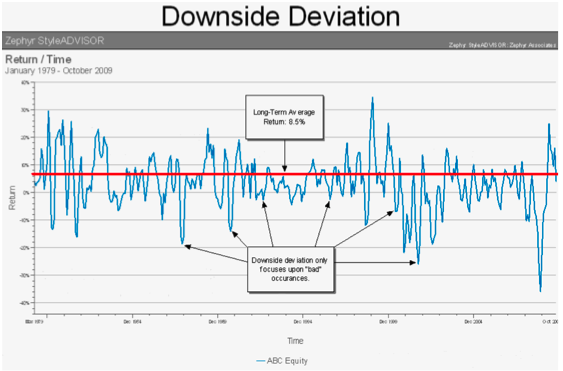
Although it is not required to be a construction manager, it can show your knowledge. After passing a technical exam, and gaining the relevant experience you can get the Certified construction manager designation. The certification comes at a high price. A self-study course is required for applicants on the professional construction manager role, risk allocation and legal issues. After passing the Associate Contractor exam and meeting all other requirements, you will be eligible to earn your certification.
Certification
There are many certifications available for construction managers. The Associate Constructor (AC) certification is the first level, and it demonstrates a high level of construction management skill. ACs are required to follow the Code of Ethics of AIC. This certification is ideal for those with a background from another industry. This certification must also be renewed every three year. Applicants should understand that certifications are available both online and through exams.
Having a certificate in construction management can help a construction professional improve their skill set and earn higher pay. A construction management certificate shows employers that you have the knowledge and experience necessary to successfully manage a construction project. This certificate distinguishes small contractors and larger competitors by demonstrating your ability to manage a project. The cost of obtaining a certificate and the type of training required to obtain it vary. For those with an undergraduate degree in construction, the Post-baccalaureate Certificate in Construction Management can help you advance your career as a construction manager.

Education
You may be interested in pursuing a certificate of completion if you're seeking to further your education within the field. While it is not required to work, certification acts as a badge of distinction. It is a proof of your knowledge and dedication in the field. Moreover, it offers networking opportunities, as the examining body requires proof of supervisory hours in order to award you the certificate. The credentialing process can be boosted by professional organizations, which can assist you in your early career.
Students will receive training in project management principles and techniques upon completion of this program. Students will gain knowledge about the project life cycle, including project management, general contracting, design-build, and more. This program emphasizes the need to combine classroom learning with practical experience. Students will be able to evaluate the quality of construction projects as well as the management processes involved at each stage.
Experience
If you are interested in a career as a contractor, it is important to be familiar with the requirements to become a certified manager. An internship can be a good way to start your career, even if you don't have a degree from high school. While internships are often unpaid, they offer valuable experience in construction. Students can also work as construction managers' assistants, which can help to understand the responsibilities.
The Certified Construction Manager Credential (CCM) is the gold standard for personnel credentials in Construction Management. CCM certification is the only one that is accredited by ANSI. It is also part of the ISO 17024 standard. Leading owners-consumers are increasing the use of Certified Construction Managers in construction RFPs. A growing number support CCM by offering technical and financial assistance.

Salary
A salary for a qualified construction manager can vary. There are different hazard levels depending on where you work. A higher-risk job may result in a higher salary or hazard pay contingencies. Managers who are certified workers may command a higher starting wage. Here are some ways to make the most of your education. A certified construction manager's salary can be as high as $75,000 or more per year.
A construction manager earns a salary that is well above the national average. Construction managers work with many consultants, including architects and civil engineers, as well as a variety of tradespeople. For some projects, specialists are required in the following areas: structural steel, landscaping and painting, as well as paving roads and excavating sites. They may also interact with local officials and lawyers. A construction manager may also consult with city inspectors and a city planning official.
FAQ
What are the steps in the decision-making process in management?
The decision-making process of managers is complicated and multifaceted. It includes many factors such as analysis, strategy planning, implementation and measurement. Evaluation, feedback and feedback are just some of the other factors.
When managing people, the most important thing to remember is that they are just human beings like you and make mistakes. You can always improve your performance, provided you are willing to make the effort.
This video will explain how decision-making works in Management. We discuss different types of decisions as well as why they are important and how managers can navigate them. Here are some topics you'll be learning about:
How does a manager motivate his/her employees?
Motivation can be defined as the desire to achieve success.
It is possible to be motivated by doing something you enjoy.
You can also feel motivated by making a positive contribution to the success in the organization.
For example, if your goal is to become a physician, you will probably find it more motivational to see patients rather than to read a lot of medicine books.
Motivation comes from within.
You may feel strongly that you are responsible to help others.
Perhaps you enjoy working hard.
Ask yourself why you feel so motivated.
Then try to think about ways to change your situation to be more motivated.
What is the difference in leadership and management?
Leadership is about influencing others. Management is all about controlling others.
A leader inspires others while a manager directs them.
Leaders motivate people to succeed; managers keep workers on track.
A leader develops people; a manager manages people.
What is the difference of a program and project?
A project is temporary while a programme is permanent.
A project usually has a specific goal and deadline.
It is usually done by a group that reports back to another person.
A program usually has a set of goals and objectives.
It is often implemented by one person.
What are management concepts?
Management concepts are the fundamental principles and practices that managers use when managing people and their resources. They cover topics such as job descriptions and performance evaluations, human resource policies, training programs, employee motivation, compens systems, organizational structure, among others.
Statistics
- UpCounsel accepts only the top 5 percent of lawyers on its site. (upcounsel.com)
- Our program is 100% engineered for your success. (online.uc.edu)
- The profession is expected to grow 7% by 2028, a bit faster than the national average. (wgu.edu)
- Hire the top business lawyers and save up to 60% on legal fees (upcounsel.com)
- The average salary for financial advisors in 2021 is around $60,000 per year, with the top 10% of the profession making more than $111,000 per year. (wgu.edu)
External Links
How To
How do you implement a Quality Management Plan (QMP)?
Quality Management Plan (QMP), which was introduced in ISO 9001:2008, provides a systematic approach to improving processes, products, and services through continual improvement. It emphasizes on how to continuously measure, analyze, control, and improve processes, product/service, and customer satisfaction.
QMP is a method that ensures good business performance. The QMP aims to improve the process of production, service delivery, and customer relationship. QMPs must include all three elements - Products, Services, and Processes. The QMP that only addresses one aspect of the process is called a Process QMP. QMPs that focus on a Product/Service are known as "Product" QMPs. QMP is also used to refer to QMPs that focus on customer relations.
There are two key elements to implementing a QMP: Strategy and Scope. These are the following:
Scope is what the QMP covers and how long it will last. For example, if your organization wants to implement a QMP for six months, this scope will define the activities performed during the first six months.
Strategy: This describes the steps taken to achieve the goals set out in the scope.
A typical QMP has five phases: Planning (Design, Development), Implementation (Implementation), and Maintenance. Here are the details for each phase.
Planning: This stage is where the QMP objectives are identified and prioritized. To understand the expectations and requirements of all stakeholders, the project is consulted. After identifying the objectives, priorities and stakeholder involvement, it's time to develop the strategy for achieving the goals.
Design: This stage involves the creation of the vision, mission, strategies and tactics necessary to implement the QMP successfully. These strategies are implemented by the development of detailed plans and procedures.
Development: The development team is responsible for building the resources and capabilities necessary to implement the QMP effectively.
Implementation involves the actual implementation using the planned strategies.
Maintenance: This is an ongoing procedure to keep the QMP in good condition over time.
Additional items must be included in QMP.
Stakeholder Engagement: It is crucial for the QMP to be a success. They should actively be involved during the planning and development, implementation, maintenance, and design stages of QMP.
Initiation of a Project: A clear understanding and application of the problem statement is crucial for initiating a project. In other words, the initiator needs to know why they want to do something and what they expect from the outcome.
Time Frame: This is a critical aspect of the QMP. The simplest version can be used if the QMP is only being implemented for a short time. If you're looking to implement the QMP over a longer period of time, you may need more detailed versions.
Cost Estimation: Another important component of the QMP is cost estimation. It is impossible to plan without knowing what you will spend. Before you start the QMP, it is important to estimate your costs.
The most important thing about a QMP is that it is not just a document but also a living document. It changes with the company. So, it should be reviewed periodically to make sure that it still meets the needs of the organization.